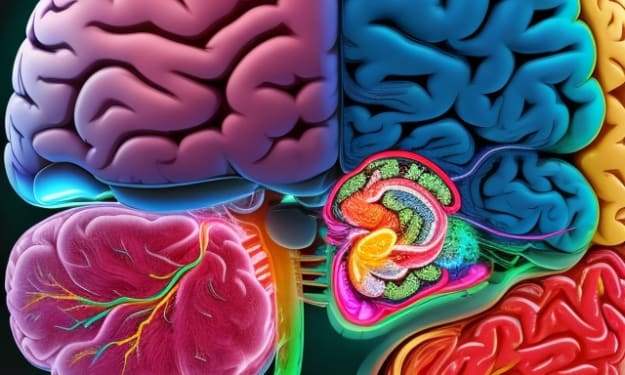Rewarding Ourselves with Love
The Power of Self-Love and Its Neurological Impact

Rewarding Ourselves with Love: The Power of Self-Love and its Neurological Impact
Love is often associated with the affection and care we give to others, but what about the love we give to ourselves? Self-love, the practice of nurturing and valuing oneself, is a powerful tool that can have a profound impact on our overall well-being. Recent scientific research has shown that self-love not only enhances our mental and emotional health but also has a tangible neurological impact, activating reward pathways in the brain that promote feelings of happiness and contentment. Understanding the science behind self-love can empower us to prioritize our own well-being and lead more fulfilling lives.
At the core of self-love is the concept of self-compassion, which involves treating ourselves with kindness, acceptance, and understanding, especially in times of difficulty or failure. When we practice self-compassion, the brain's reward system, which is responsible for processing pleasurable experiences, is activated. This system includes the release of neurochemicals such as dopamine, which is associated with feelings of reward and motivation. In essence, self-compassion rewards us with a sense of well-being and self-worth, reinforcing the importance of nurturing ourselves.
Research has shown that individuals who practice self-love and self-compassion have lower levels of stress and anxiety, improved emotional resilience, and higher overall life satisfaction. These positive psychological outcomes are closely linked to the neurological effects of self-love. By activating the brain's reward system, self-love helps to counteract the negative effects of stress and promotes the release of neurotransmitters that enhance our mood and overall sense of happiness.
Moreover, self-love has been found to have a positive impact on our physical health. Chronic stress, which is often associated with a lack of self-care and self-compassion, can have detrimental effects on our immune system, cardiovascular health, and overall well-being. By practicing self-love, we reduce stress levels and promote a healthier physiological state. The release of neurochemicals associated with self-love, such as oxytocin, also contributes to improved physical health by reducing inflammation and promoting relaxation.
Cultivating self-love is not only beneficial for individuals but also has broader societal implications. When we prioritize self-care and self-compassion, we are better equipped to show up as our best selves in our relationships, work, and communities. By taking care of ourselves, we have more energy, empathy, and resilience to offer to others. This creates a positive feedback loop where self-love not only benefits us individually but also enhances our ability to contribute to the well-being of those around us.
Practicing self-love may seem challenging in a world that often emphasizes self-criticism and external validation. However, there are simple strategies we can incorporate into our daily lives to nurture self-love. Engaging in activities that bring us joy, practicing mindfulness and self-reflection, setting boundaries, and prioritizing self-care are all powerful ways to cultivate self-love. These practices not only activate the brain's reward system but also help rewire our brains, gradually shifting our mindset towards self-compassion and self-worth.
In conclusion, self-love is not a selfish act but a vital practice that benefits our mental, emotional, and physical well-being. The neurological impact of self-love, through the activation of the brain's reward system, promotes feelings of happiness, contentment, and overall life satisfaction. By prioritizing self-compassion, we not only enhance our own well-being but also have a positive influence on our relationships and communities. Cultivating self-love is a powerful tool that empowers us to lead more fulfilling lives and creates a ripple effect of positivity in the world around us. So let us reward ourselves with love and embrace the transformative power it holds.






Comments
There are no comments for this story
Be the first to respond and start the conversation.